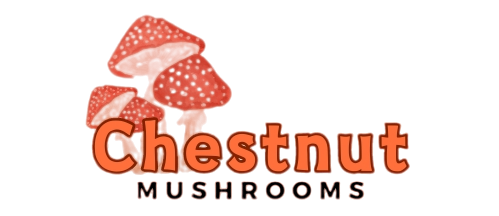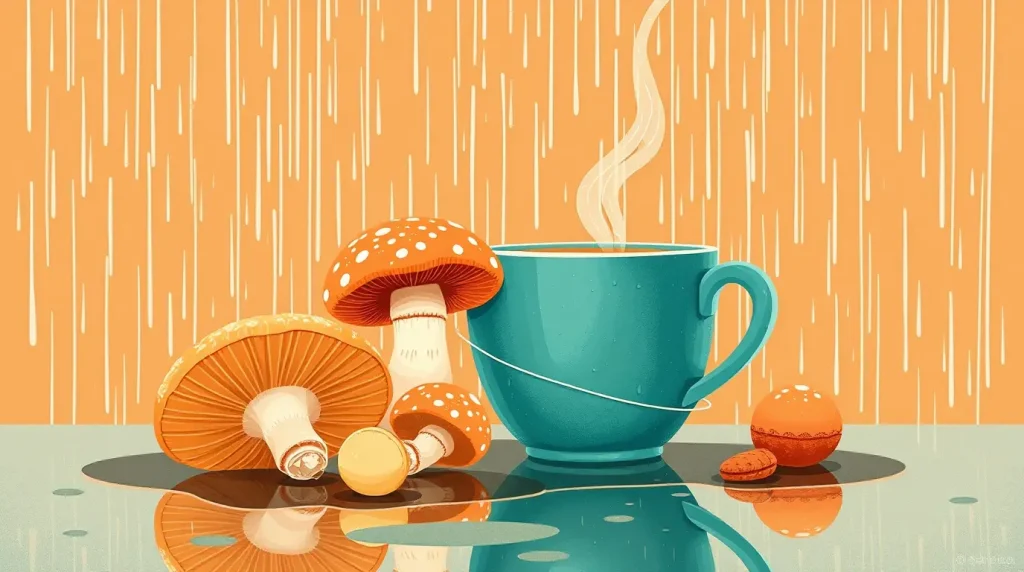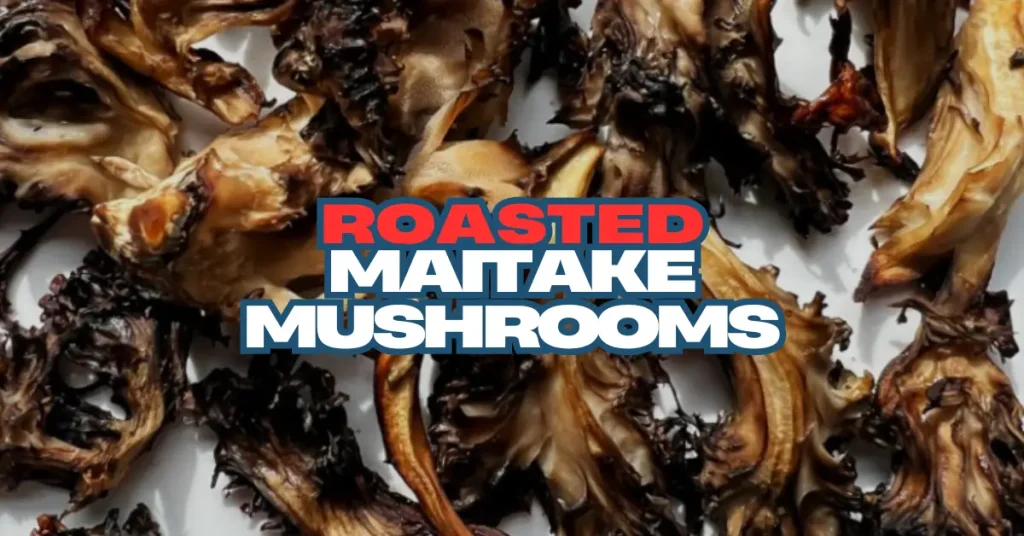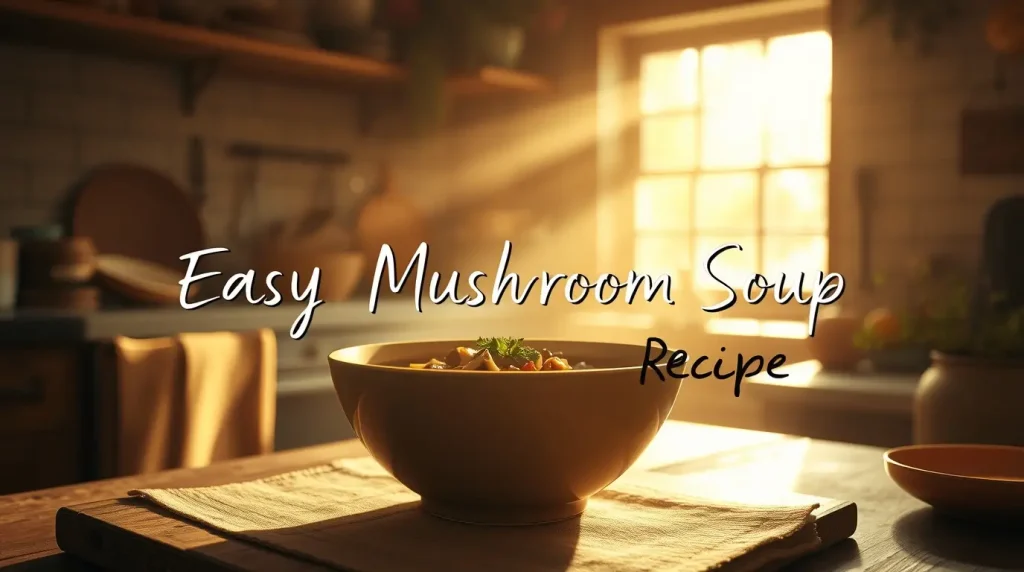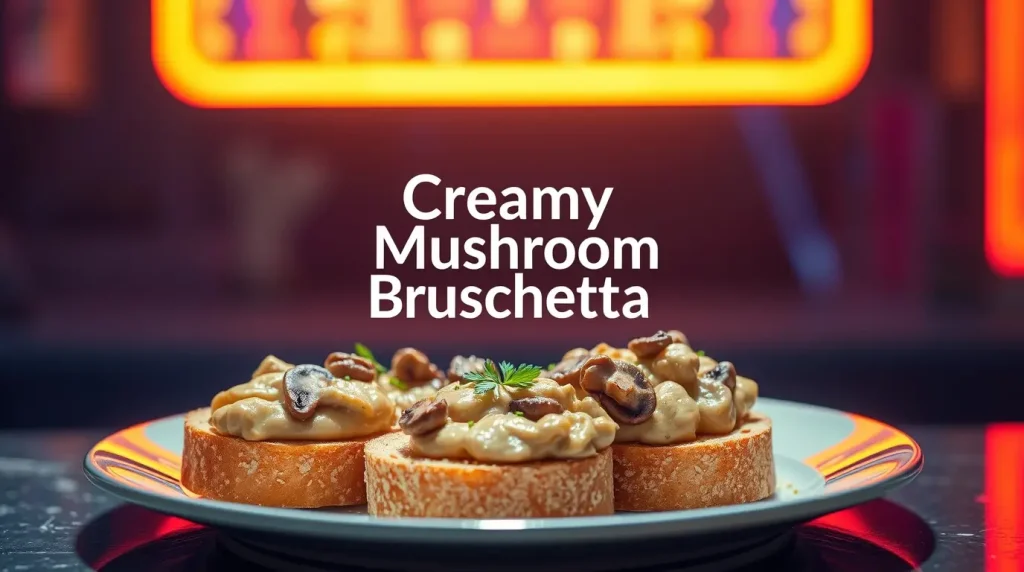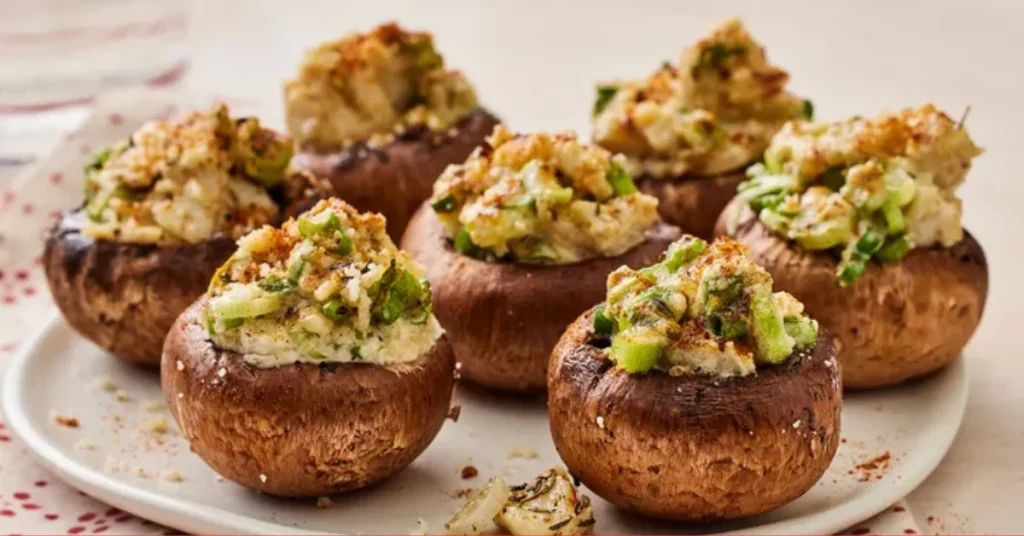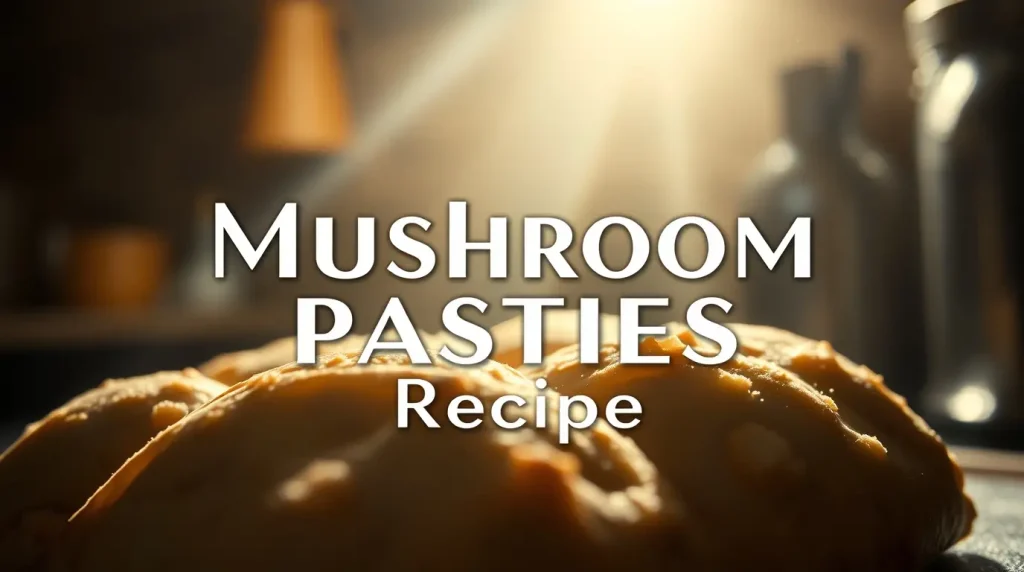How To Make Mushroom Tea
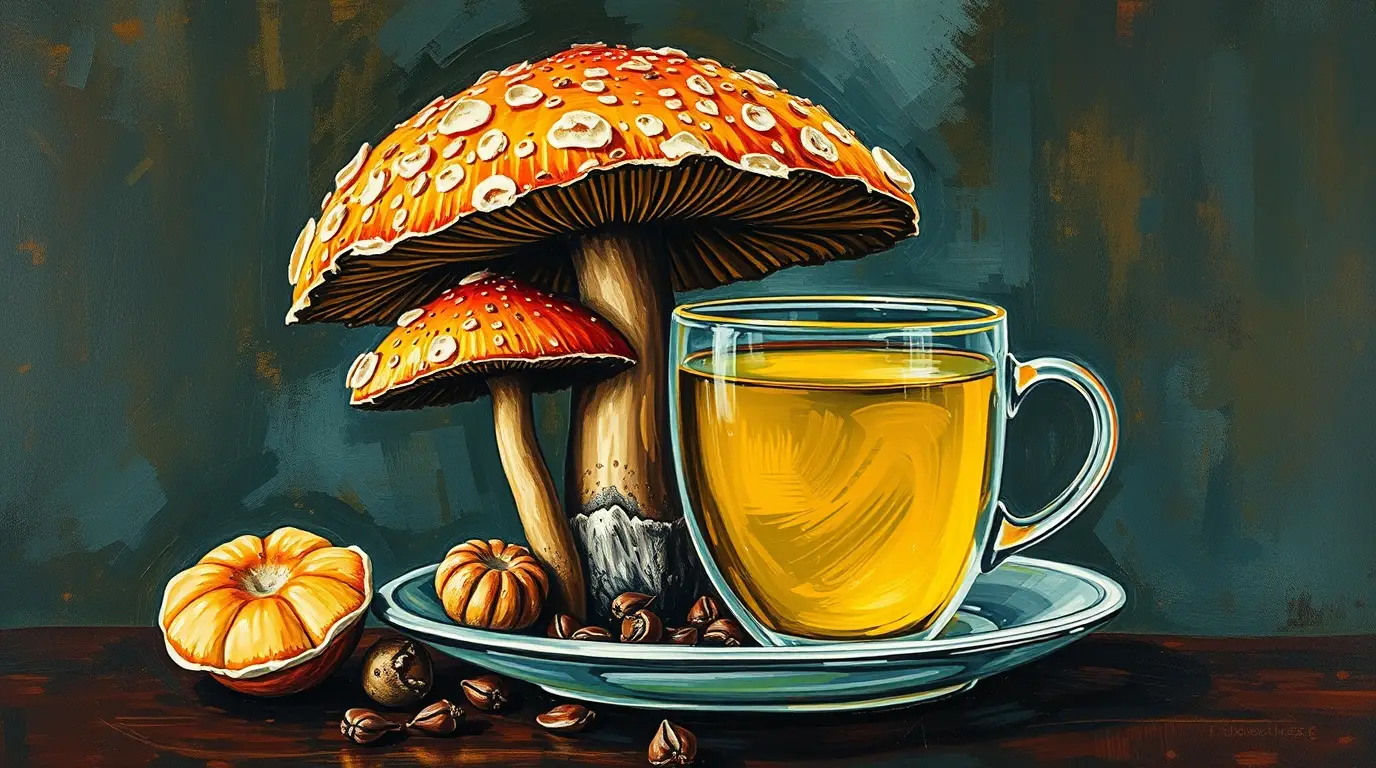
Many of us look for ways to boost our energy and relieve stress by taking energy drinks and herbal teas. You’ve tried matcha lattes, chai blends, coffee and turmeric-infused drinks, but have you heard of mushroom tea? Imagine sipping on a cup that not only tastes earthy and calming but actually boosts your brain power, supports your immune system and helps to relieve stress. People have been brewing mushrooms for centuries.
Mushrooms, like reishi, chaga, and lion’s mane have been used for centuries due to their powerful health benefits. From boosting immune system to helping you stay mentally sharp, these fungi are doing a lot more than just growing in the forest.
If you’re tired of reaching for another cup of coffee or energy drink that leaves you jittery, it might be time to try something new: mushroom tea. In this post, I will share how to make mushroom tea, calories, the history of mushroom tea and mushroom tea health benefits.
What Is Mushroom Tea?
Mushroom tea is a beverage made by brewing various types of edible mushrooms in hot water. Mushroom tea is prepared from dried mushrooms or their extracts. The resulting liquid contains bioactive compounds that are believed to offer a range of health benefits.
Mushroom tea can be made from several different mushrooms including medicinal varieties like Lion’s Mane, Reishi, Chaga, and Cordyceps. These mushrooms are renowned for their therapeutic properties and good choice for those looking to boost their immune system, enhance brain function and manage stress.
Making mushroom tea is simple and can be done in a few easy steps. Here’s a quick mushroom tea recipe using dried mushrooms powder:
How To Make Mushroom Tea
Course: Mushroom RecipesCuisine: IndianDifficulty: Easy1
servings15
minutes15
minutes16
kcalIngredients
1 tbsp Mushroom Powder
2 cups hot water
1 tbsp honey, Ginger, Lemon, Green Tea, Cinnamon (Optional)
Directions
- If you’re using dried mushrooms, slice or break them into small pieces or take 3-5 gram powder form edible mushrooms.
- Boil about 2 cups of water in kettle. Use filtered water for the best taste.
- Add the mushrooms to the boiling water. Reduce the heat and let them simmer for about 5-10 minutes. Don’t let it simmer for longer, if you are adding cinnamon, ginger or green tea. It will be bitter in taste.
- Strain the tea into a cup, add if you like honey and lemon.
- Find a relaxing spot, enjoy your healing cup of mushroom tea.
Notes
- Make sure you’re using edible or medicinal mushrooms. Ensure the mushrooms are clean. Don’t steep too much, if your are adding cinnamon, green tea, lemongrass. Too much steeping will result bitter taste. You can feel it earthy taste, feel free to add honey, lemon, ginger, or cinnamon to improve taste.
Mushroom Tea Taste

Mushroom taste has earthy and umami flavor. It can be bitter in taste. Flavor comes through variety of edible mushroom used in making tea. For example, Chaga mushroom tea is milder and slightly sweeter, while Resihi mushroom tea is bitter in taste. However, ingredients like ginger, lemon, and honey mixed into tea can change the flavor of the tea.
Nutritional Information
Mushroom tea is low in calories, an excellent beverage choice for those who are mindful of their calorie intake. On average, one cup of mushroom tea made from dried mushrooms contains approximately 16 calories per serving. The calorie content may vary depending on the type of mushroom used and any additional ingredients (such as honey or lemon) added to the tea.
Mushrooms themselves are typically low in calories but rich in nutrients. They contain a variety of vitamins, minerals, and bioactive compounds that contribute to their health benefits.
Mushroom Tea vs Traditional Tea
Mushroom tea has low to no caffeine and is higher in fiber, high in antioxidants, high in minerals & vitamins and low calories compared to traditional teas.
A Brief History of Mushroom Tea
Humans are using mushrooms for thousands of years with evidence of consumption for both medicinal and spiritual purposes. In Chinese, Reishi mushrooms called as “lingzhi” meaning “mushroom of immortality” or “magic fungus” were used as medicine in China and Japan. Chaga mushrooms, known as mushroom of immortality have a long history in Siberian cultures, where they were used by Khanty People in the 12th century. Khanty people used chaga mushrooms in tea to help with digestion and to detox their bodies. They also used to make skin soaps.
Mushroom tea has been consumed in different cultures for centuries as a form of herbal remedy. In recent decades, modern trend of mushroom tea has gained popularity in the West for their healing properties.
7 Health Benefits of Mushroom Tea
Studies and centuries of use in traditional medicine vote for mushroom tea to support a healthy lifestyle. Below, we’ll explore its benefits, potential side effects, and its role in weight loss.
Stress Relief and Adaptogenic Effects
Mushrooms like reishi and lion’s mane contain adaptogens, compounds that help the body manage stress. These adaptogens work by balancing the central nervous system and reduce the effects of cortisol (the stress hormone). Chronic stress can lead to a range of serious health problems. Besides many herbal teas, consumption of mushroom tea also support the body in handling stress effectively.
By calming the body’s stress response, mushroom tea helps promote emotional and physical well-being.
Boosts Immunity and Reduces Inflammation
Mushroom tea is rich in antioxidants. Research has shown that mushrooms like chaga, reishi, and lion’s mane contain potent antioxidant and anti-inflammatory properties. Mushroom tea can support a healthy immune system, protect against chronic diseases and inflammations.
It lowers the risk of chronic diseases.
Supports Gut Health
Mushrooms, especially those rich in beta-glucans are known to support gut health by acting as prebiotics. These beneficial fibers feed the good bacteria in the gut, improve digestion and enhance the overall microbiome. A healthy gut is vital not only for digestion but also for a strong immune system and mood regulation. Drinking mushroom tea can contribute to a balanced gut microbiome, leading to better digestion and overall health.
Enhances Cognitive Function
Mushrooms like lion’s mane are renowned for their potential cognitive benefits. Studies have suggested that lion’s mane can help stimulate nerve growth factor (NGF), a protein crucial for maintaining and growing neurons in the brain. This can improve cognitive function, memory, and focus. Taking mushroom tea with lion’s mane could be a natural way to boost brain health and maintain mental clarity as you age.
Aids in Better Sleep
Some varieties of medicinal mushrooms such as reishi promote relaxation and better sleep. Reishi mushrooms are particularly effective at calming the mind and regulating the body’s stress response. Drinking Reishi mushroom tea before bedtime can help ease the mind, improve sleep quality and contribute to overall mental well-being.
Supports Weight Loss and Metabolism
Mushroom tea is low in calories and contains compounds (betulinic acid in Chaga Mushrooms) that may help with weight loss. The fiber in mushrooms helps promote satiety, help you feel fuller for longer and reduce the urge to snack between meals. Additionally, some research suggests that mushrooms like reishi and chaga may help regulate blood sugar levels.
Anti-Cancer Properties
Although much of the research on mushrooms and cancer prevention is still in its early stages, some studies suggest that certain mushrooms may have cancer-fighting properties. Chaga mushrooms, for example, are rich in betulinic acid and other compounds that may slow the growth of cancer cells and reduce inflammation in the body. Mushroom tea made from varieties like chaga have potential anti-cancer benefits.
Side Effects of Mushroom Tea
Mushroom tea offers many health benefits but it’s important to be aware of possible side effects of mushrooms.
Interactions with Medications
Some medicinal mushrooms like reishi and chaga, may interact with medications with blood thinners and immunosuppressants. Reishi, for instance, can act as a mild blood thinner, which may enhance the effects of medications like warfarin. If you’re taking any medication, it’s important to consult with a healthcare provider before adding mushroom tea into your routine.
Kidney Stones
Mushrooms like chaga contain high levels of oxalates and it can bind to calcium and form kidney stones when consumed in excess. If you have a history of kidney stones or kidney disease, it’s best to avoid or limit your intake of mushroom tea or consult with a healthcare professional.
Gastrointestinal Discomfort
Some people can experience mild gastrointestinal discomfort, such as bloating or gas when consuming mushrooms. But, If it is more severe or consistent, its better to avoid. Starting with small amounts of mushroom tea and gradually increasing the dosage can help your body adjust.
Best Mushroom Tea
Chaga mushroom and reishi mushroom tea is best and safe if you don’t have any medical sufferings.
Mushroom Tea Brands
Different brands offer mushroom tea. For your learning, here are the best brands of mushroom tea.
Conclusion
Mushroom tea is an easy and effective way to have benefits of medicinal mushrooms into your daily routine. Whether you choose to brew a cup of Lion’s Mane for improved focus or Reishi for stress relief, Chaga for weight loss, mushroom tea can boost overall well being.
If you haven’t tried it yet, follow the simple steps above, prepare and can enjoy this healing beverage at home.

Hi, I am Nazish Arif. I am a Food Scientist. On this Blog, I do share insights about Chestnut Mushrooms, Mushrooms Recipes, along with information of other mushrooms as well.
